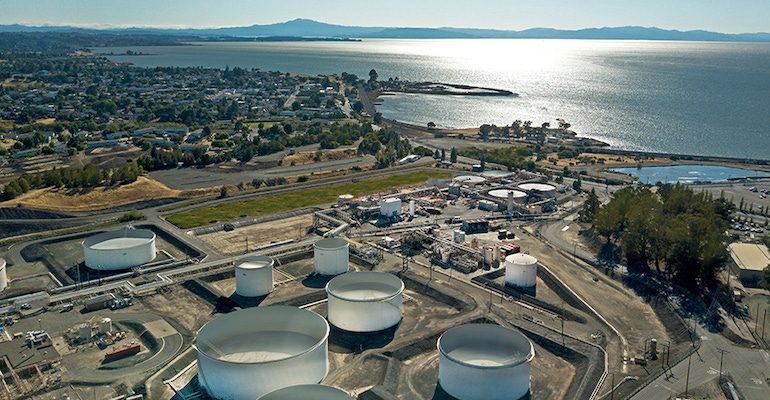Firm to Open “World’s Largest” Renewable Fuels Plant
Phillips 66 is converting a crude oil refinery to produce more than 800 million gal/yr of renewable fuels
August 13, 2020

Energy and logistics firm Phillips 66 announced plans Wednesday to convert its San Francisco Refinery in Rodeo, CA into the “world’s largest” renewable fuels plant. Once operational, the Phillips 66 Rodeo Renewed project will process cooking oil, fats, greases, and soybean oils into over 800 million gal/yr of renewable diesel, renewable gasoline, and sustainable jet fuel.
“Phillips 66 is taking a significant step with Rodeo Renewed to support demand for renewable fuels and help California meet its low carbon objectives,” Phillips 66 Chief Executive Officer and Chairman Greg Garland said in a statement. “We believe the world will require a mix of fuels to meet the growing need for affordable energy, and the renewable fuels from Rodeo Renewed will be an important part of that mix.”
The company will build new pre-treatment units at the site and transform its existing hydrocracking units into renewable fuel production assets. Cooking oils, fats, greases, and soybean oils used to produce the renewable fuels will be sourced globally. Products made at the plant will supply the market in California.
Production is expected to commence at the reconfigured site in early 2024 if plans are approved by officials in Contra Costa County and the Bay Area Air Quality Management District. With the completion of the project, the facility will no longer process crude oil. The renewable fuels plant will employ about 400 workers once it becomes operational.
In addition to the conversation project, Phillips 66 also revealed that it plans to close its Rodeo Carbon Plant and Santa Maria refining plant in Arroyo Grande, CA. Starting in 2023, the company will remove related crude oil pipelines in phases.
About the Author(s)
You May Also Like




